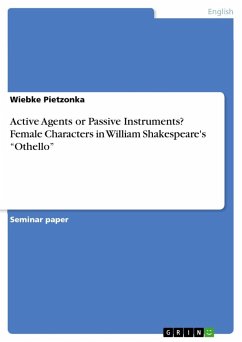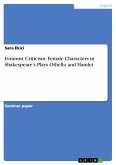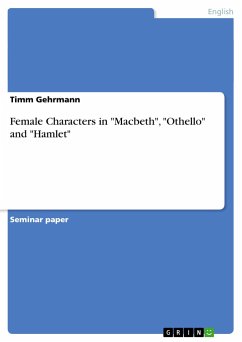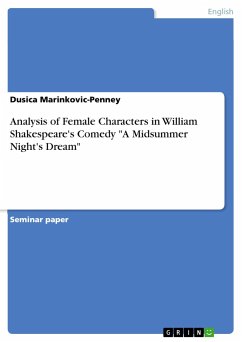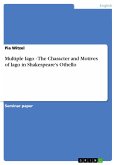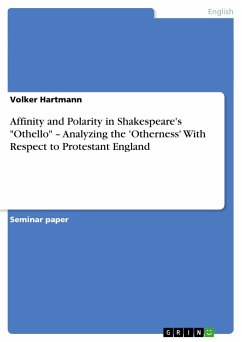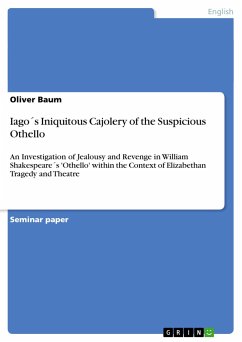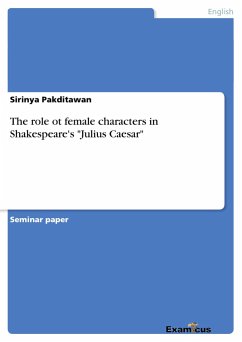Seminar paper from the year 2011 in the subject English Language and Literature Studies - Literature, grade: 1,3, University of Potsdam (Institut für Anglistik/ Amerikanistik), course: Shakespeare`s Tragedies, language: English, abstract: "And have not we affections? / Desires for sport? and frailty, as men have? / Then let them use us well: else let them know, / The ills we do, their ills instruct us so." (Shakespeare 4.3.100-103)This emancipated statement by Emilia in William Shakespeare`s tragedy "Othello" already could lead to assume that there is far more to the female characters in the play than just the role of the loving wife or the accessory part for the male ones. However, it is mostly Iago and his schemes or Othello and his tragic fate that are in the centre of the reader`s attention rather than the characters of Desdemona, Emilia and Bianca. Iago being unique for the Shakespearean villain and Othello as the personification for the tragedy of jealousy are, to a certainextent, pushing back the female figures to a background position in the people`s general perception of "Othello". After all, the women in the play are `worth a second glance`, since only a closer reading can really reveal the whole importance and the subtle power of women in the play, albeit in the background of it. The aim of this paper is to show the function of the female figures in "Othello" and, in this context, to prove their importance for the tragedy`s development. Therefore, I will first analyze the characters of Desdemona, Emilia and Bianca as a basis for a closer look at their function in the plot of "Othello" afterwards. In this context, it is important to say that I will not focus on every facet of the characters but only on the aspects that are significant ones for each and for the further examination. Concerning Desdemona`s, Emilia`s and Bianca`s function in the play, I will investigate in which ways they contribute to the development of the plot. Are they active or passive? Are they doers or victims? And which actions and characteristics of the female figures are actually marking their importance or even power in the tragedy? All these questions will be discussed in this paper in order to demonstrate that Desdemona as well as Emilia and Bianca are indeed more than `nice accessories` in the plot of Shakespeare`s "Othello".
Hinweis: Dieser Artikel kann nur an eine deutsche Lieferadresse ausgeliefert werden.
Hinweis: Dieser Artikel kann nur an eine deutsche Lieferadresse ausgeliefert werden.
